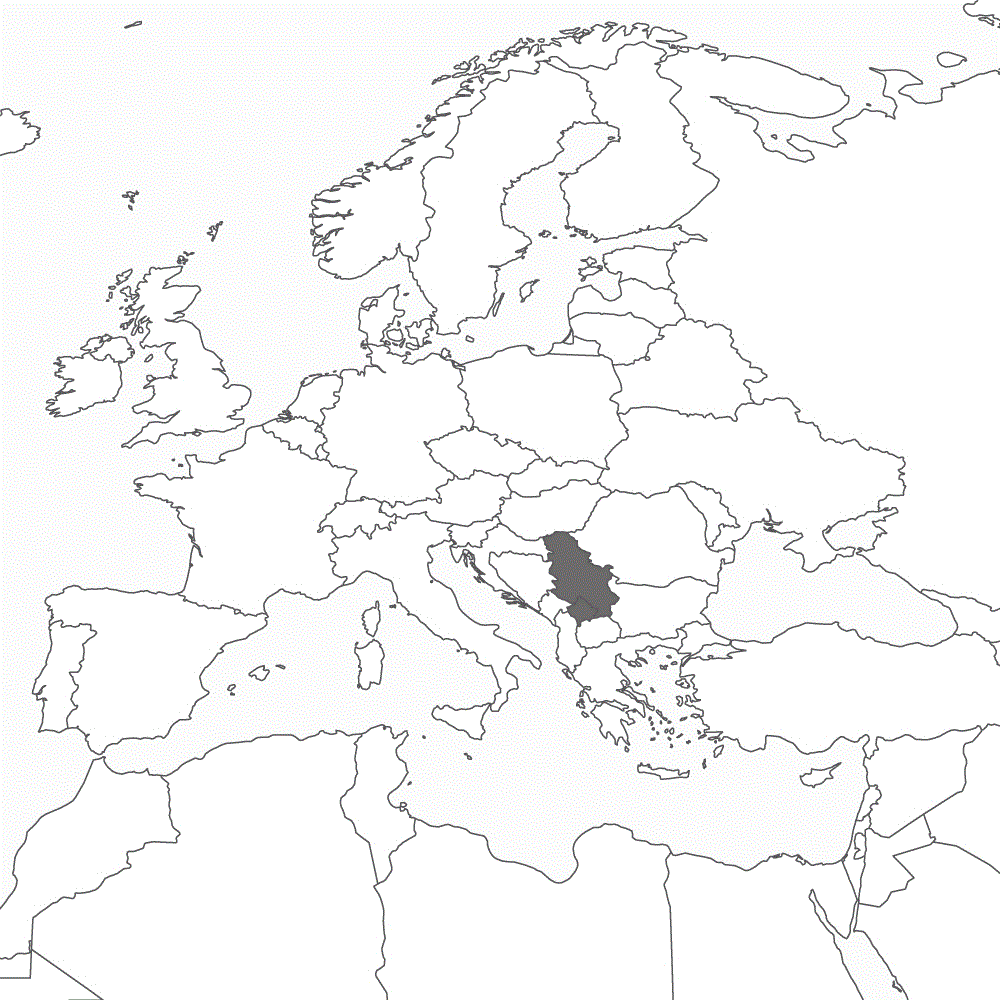The Axis of Revision
DJAKOVO (Serbia/Montenegro) A memorial for ethnic Germans was opened in the former-Yugoslavia. Expellee organizations describe the construction of the memorial in Djakovo in Serbia's northwest as a first step towards a moral rehabilitation of the Danube Germans. The German-speaking minority had for the most part collaborated with the Nazi occupation regime and, as a result, was detained and finally expelled. According to influential German expellee functionaries, Serbia/Montenegro should annul the respective decrees. The request is part of a wider effort at revision in all of Southeastern Europe that still serve as a reminder of the Paris Peace Treaties of the 1920s and 1930s.
Extermination Camps
The memorial cross, opened on 22 May, commemorate members of the German-speaking minority, who lost their lives during and after the Second World War. The so-called ethnic Germans had collaborated with the Nazi Occupation of Yugoslavia and many died as soldiers of the Third Reich. In Djakovo the liberated Yugoslavia detained numerous Danube Germans, suspected of collaboration, under questionable conditions from March 1945 to January 1948. Many of the prisoners died in custody. In expellee circles, the conditions of the time have been portrayed as echoing Ausschwitz and other places of German crimes against humanity, to characterize Djakovo as an extermination camp and to treat the collaborating Germans as equals with their own victims.
,,Moral Rehabilitation"
Present at the opening of the memorial in Djakovo were high-ranking members of the expellees, the provincial leader of the Serbian province of Vojvodina, as well as a representative of the German embassy in Belgrade. Expellee organizations called the opening of the memorial cross as ,,the first step towards moral rehabilitation of the Danube Germans". They call for the annulment of the AVNOJ decrees, in which sanctions against ethnic Germans were included. The Vojvodina parliament in the Serbian province last February joined the request1), while at the same time Croatia is preparing a annulment of the AVNOJ agreements in their territory.
Berlin-Vienna-Budapest
The efforts to annul the AVNOJ agreements in the republics of the former Yugoslavia correspond identically with the activities in the ex-republics of the former-Czechoslovakia2). The Benes decrees should also be retroactively removed from legislation. The requests are uniformly conveyed by Germany, Austria and Hungary and are complemented by Hungarian claims to Romanian territory. The group of states, with Berlin as the vocal leader, is remiscent of the 1920s and 1930s. Then, the Czechoslovak Foreign Minister Edvard Benes, under protection from the French, completed a bilateral alliance with Yugoslavia and Romania, called the Petit Entente, which was to hamper a revision of the Paris Peace Treaty by the Berlin-Vienna-Budapest axis. The Petite Entente fell apart leading up to the Munich Agreement of 29 September 1938.
1) s. Maximum Split
2) s. A European Purpose
Sources:
1000 Menschen trauern im serbischen Gakovo; www.vloe.at
Gedenkkreuz für deutsche Opfer in der Vojvodina enthüllt; Deutsche Welle Monitor Ost-/Südosteuropa 25.05.2004
